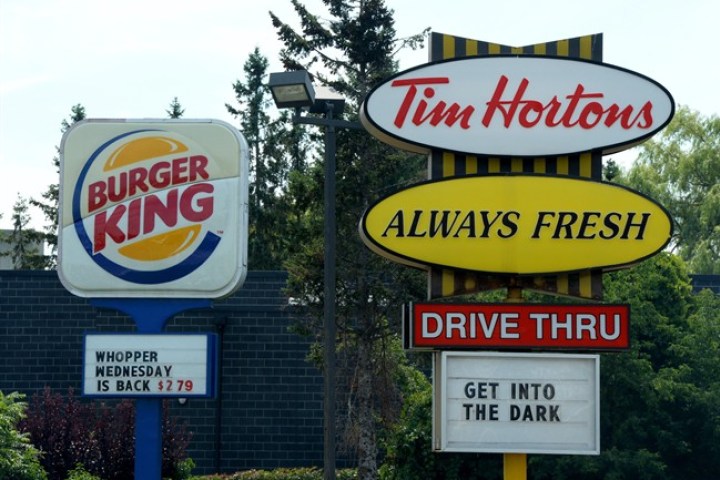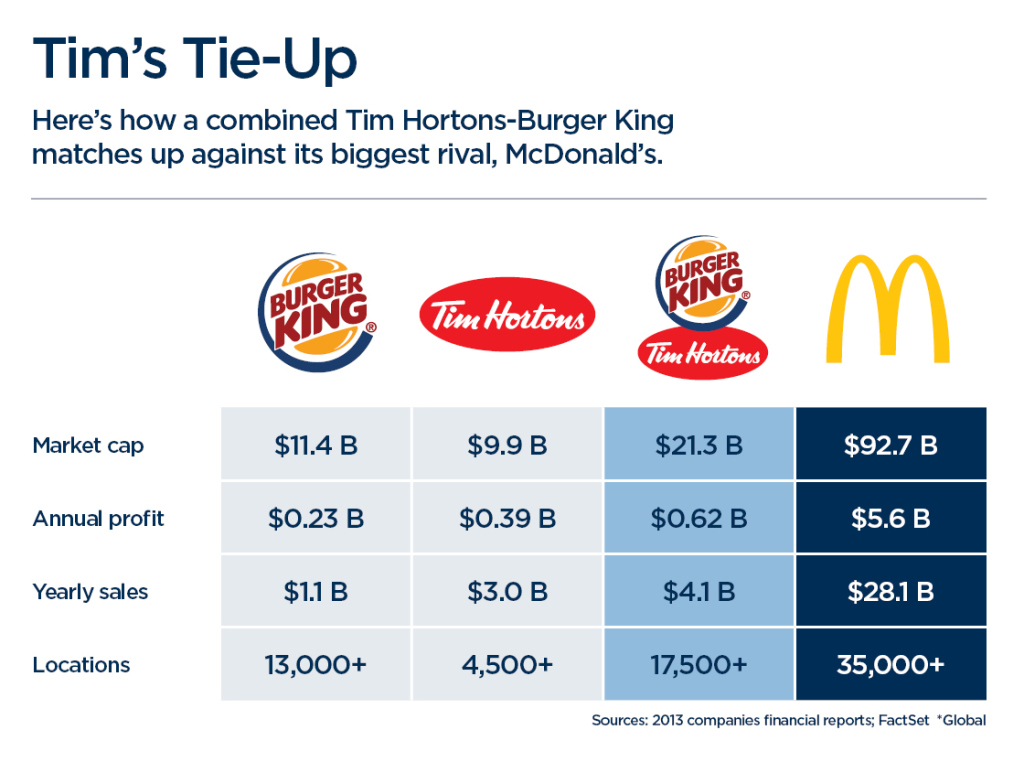Federal regulators in Ottawa have given the green light to Burger King Worldwide, Inc.’s takeover of Tim Hortons Inc. But the blockbuster deal for Canada’s iconic coffee chain still faces at least one more hurdle from the Canadian government.

“The bureau concluded that this transaction is unlikely to result in a substantial lessening or prevention of competition,” a statement from the Competition Bureau released Tuesday said.
Regulators justified their approval on the grounds that “a large number of competitors” still face off against Tims and Burger King in Canada, while there’s also “low barriers to entry in the fast food industry” for would-be rivals to join in.
Tim Hortons is the country’s biggest “quick service” chain with about 3,600 stores in Canada. Burger King has about 280 Canadian locations.
McDonald’s, the No.2 fast-food operator in Canada, has about 1,400 locations across the country.
The bureau issued on Tuesday a “no action” letter, or NAL, signaling its intentions not to pursue a challenge to the deal “at this time.”
The letter “confirms that the bureau has reviewed a specific proposed transaction and concluded that it will not, at this time, challenge that proposed transaction,” the statement said.
The merger will create the third-largest fast- food company globally, with the combined chains boasting 17,500 outlets worldwide.
MORE: Should Tim Hortons brace for job cuts?
Burger King and Tims announced in late August plans to merge and form a new fast-food company headquartered in Ontario.
While the Competition Bureau isn’t challenging the transaction, it is subject to other Canadian regulatory approvals, the bureau said. A spokesperson said the deal remains subject to an Investment Canada Act review by Industry Canada, as well as certain approvals in the United States.
Industry Canada, the federal department which oversees foreign takeovers, must determine whether the Burger King-Tim Hortons tie-up is of “net benefit” to Canada. The review is standard for takeover over a certain value.
Inversion pressure
Miami-based Burger King plans to merge with Tim Hortons and relocate to Ontario, a move experts say is partly motivated by lower tax rates in Canada.
The merger still requires approval from regulatory officials in the U.S., where there’s growing opposition to so-called tax inversion deals, where a U.S. company buys a foreign firm and shifts its headquarters abroad to lower its tax bill.
MORE: Here are the odds U.S. officials will block Tim Hortons deal
Inversions like the kind Burger King is attempting are eroding the U.S. tax base and shifting a greater burden onto individual American taxpayers, critics including President Barack Obama and U.S. Treasury Secretary Jacob Lew, have said.
Last month, the U.S. Treasury served notice about tightening rules to make such mergers more difficult. Since then, three proposed U.S. inversion deals have fallen through.
WATCH: Miami-based Burger King is buying Canada’s iconic coffee chain Tim Hortons for about US$11-billion, but the deal is rankling some consumers.



Comments